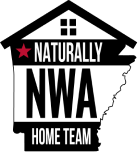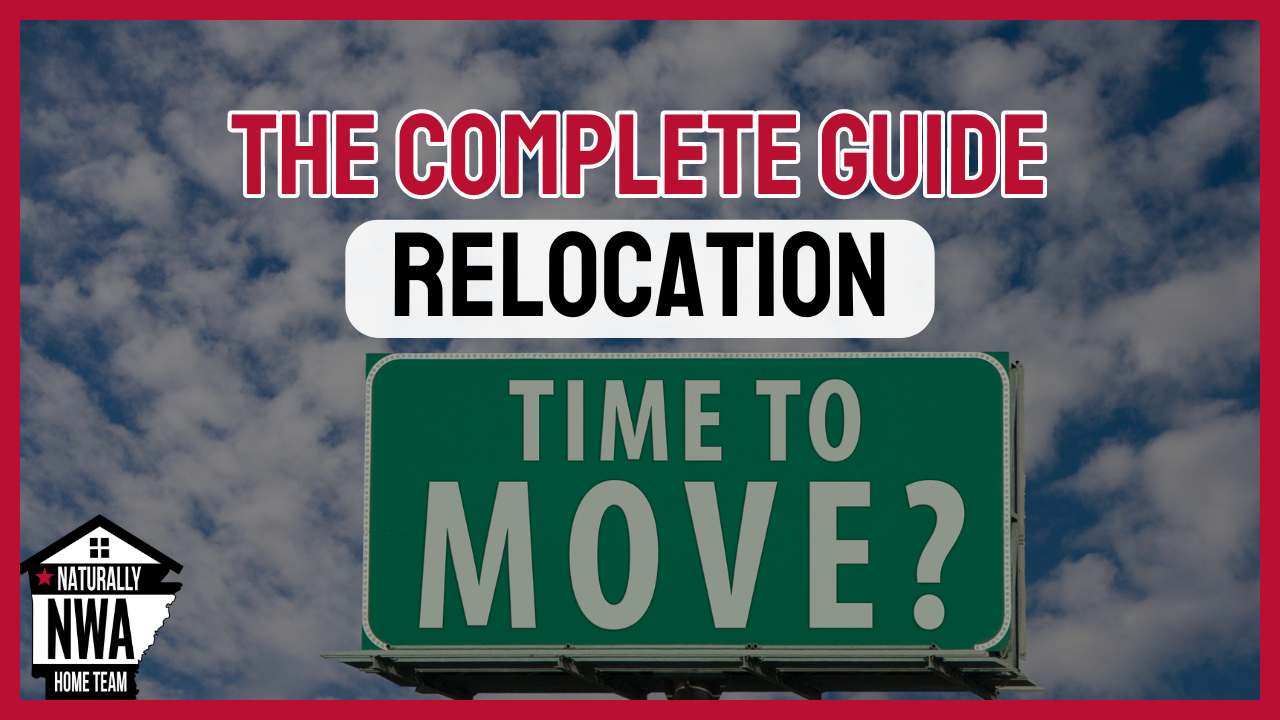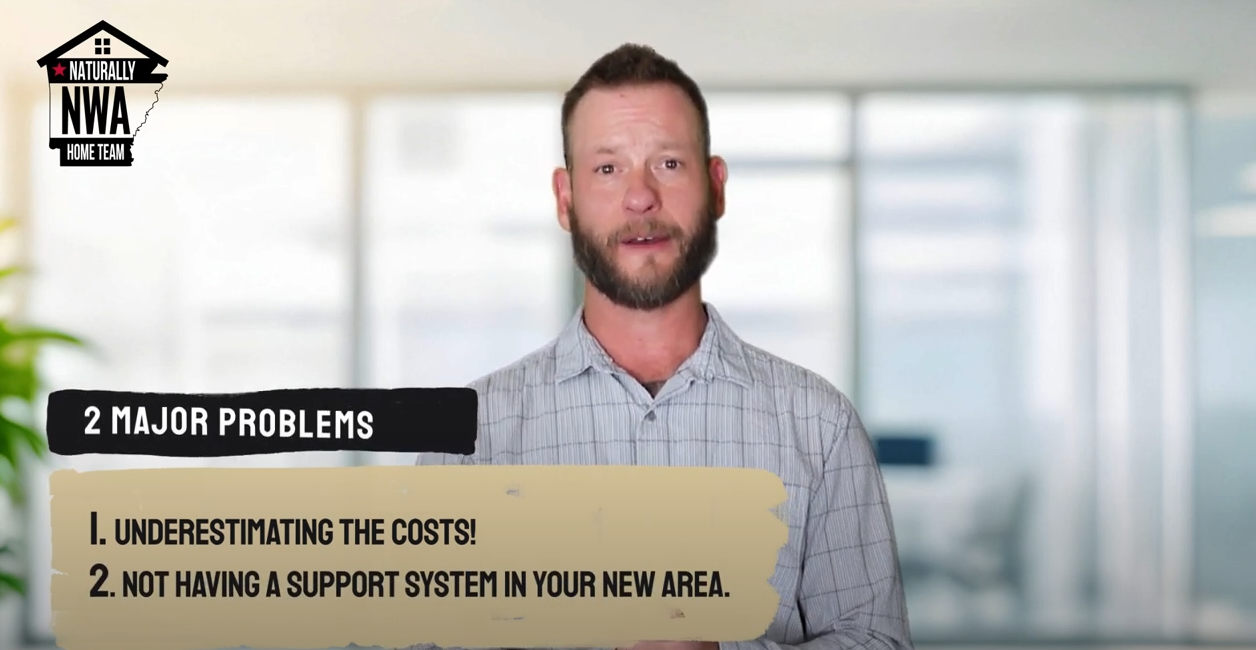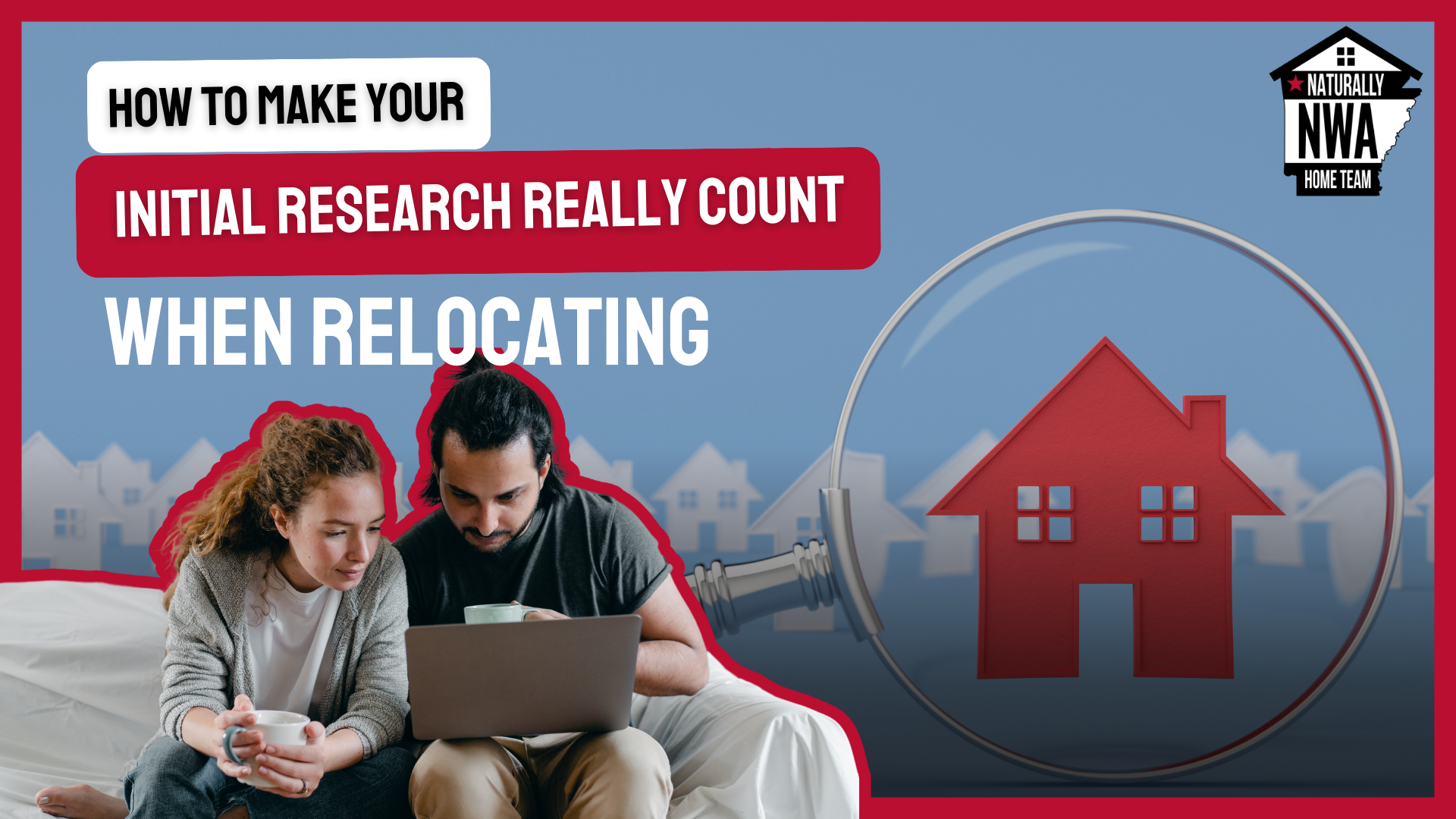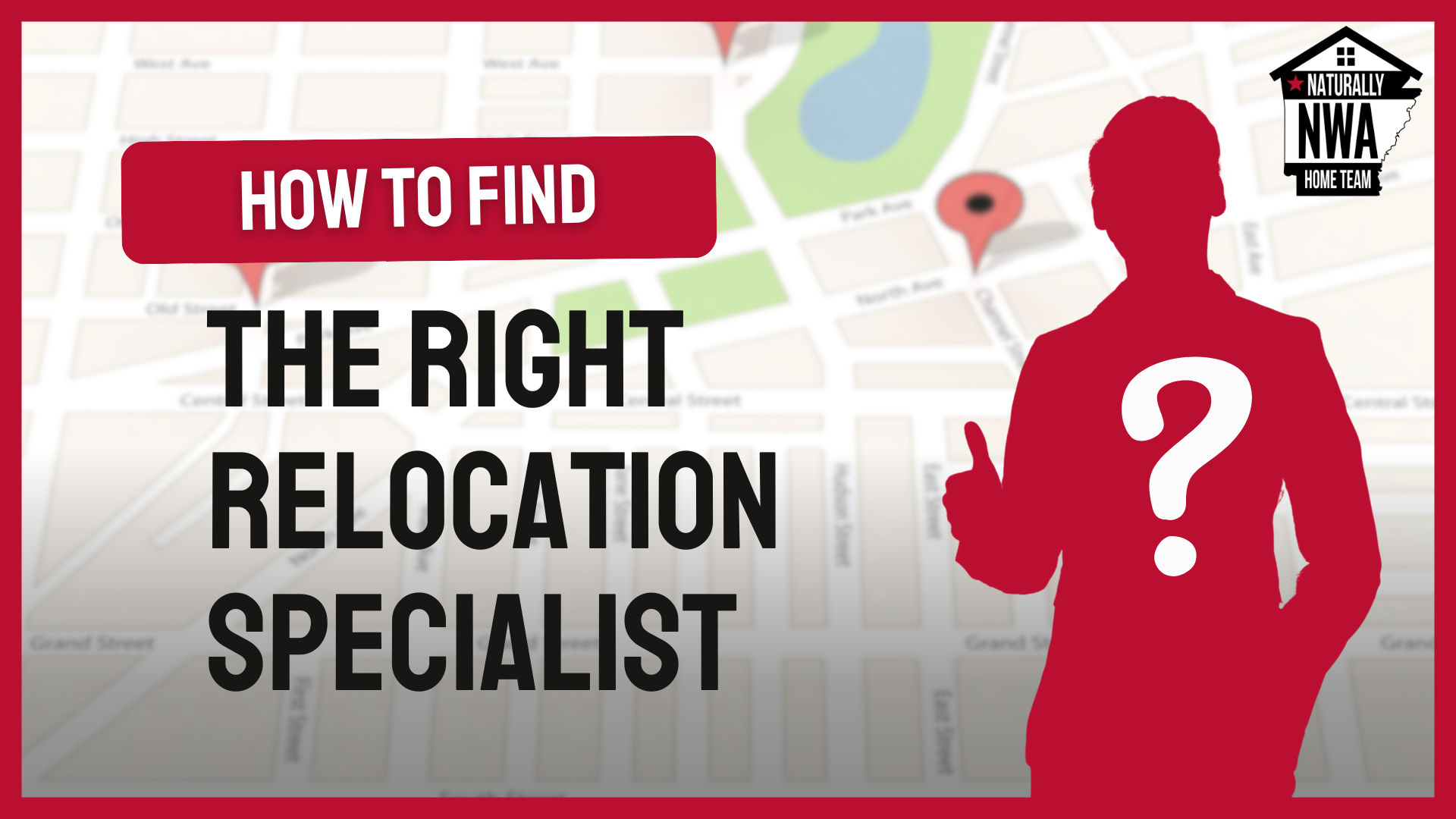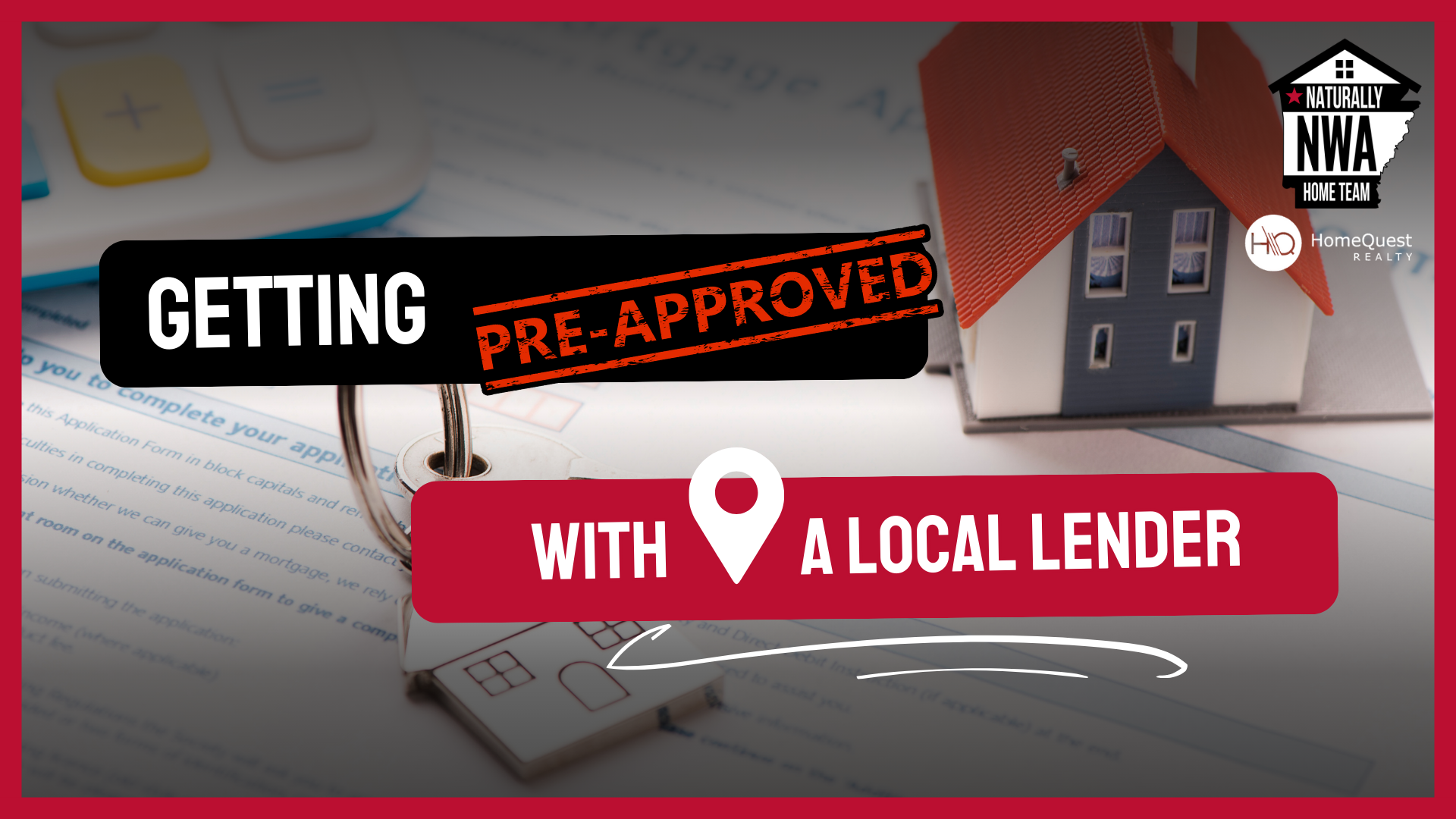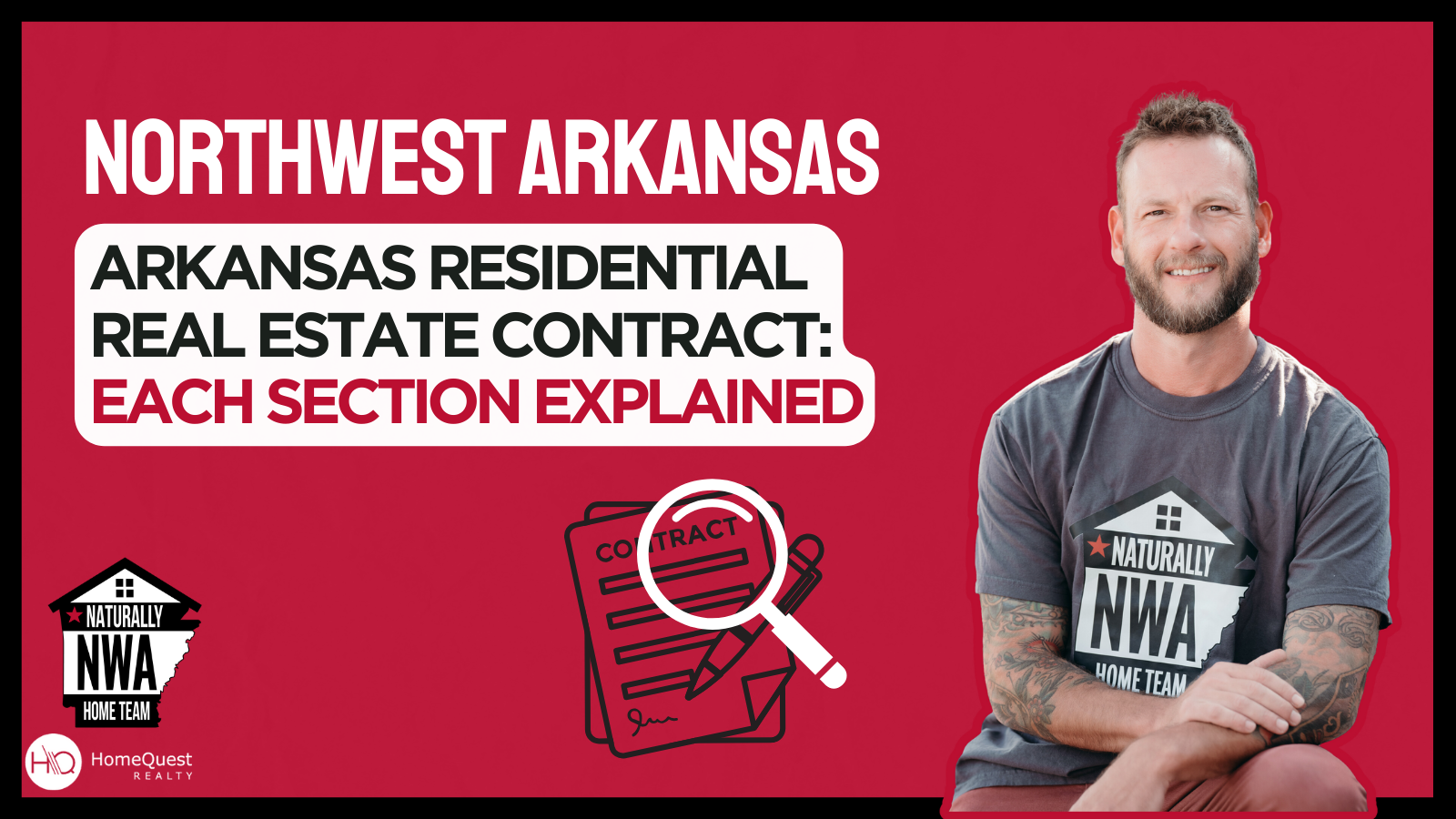-

Intro
-
Step 1
-
Step 2
-
Step 3
-
Step 4
-
Step 5
-
Step 6
INTRO: What to Expect When Relocating
The Process Overview
If relocation is on your mind, it can be overwhelming, but we’re here to guide you through the entire process.
In this overview video, I will walk you through the essential steps of the relocation process: understanding the emotional side of moving, doing the right research, connecting with a relocation specialist, finding the perfect new home, prepping your current home for sale, and settling into your new community. Whether you’re overwhelmed by the idea of relocating or just looking for practical tips to make the process smoother, this overview will equip you with everything you need to know.
Don’t miss out—watch now to set yourself up for success and ensure your relocation goes as smoothly as possible!
What To Expect
Relocating is an exciting yet challenging process, filled with mixed emotions. It often begins with optimism about new opportunities but can be accompanied by uncertainty and questions about how your life will change. You might wonder how long it will take to make new friends or adapt to a new work culture.
Socially, feeling like a stranger in a new place is common. Building connections and a sense of belonging can take time. Engaging with local groups or using social media to find events can help you settle in faster.
On the logistical side, relocating requires significant planning. Researching neighborhoods, managing the sale of your current home, and handling the details of the move can be overwhelming. Working with real estate agents, lenders, and legal professionals can ease the burden, but expect some stress as you navigate the process.
Ultimately, relocation is a journey with its ups and downs, but with the right preparation, you’ll settle into your new home and routines. Taking the time to plan and adjust will make your transition smoother.
Two Reasons People Struggle with Relocation
Relocating can be challenging, and two common reasons why people struggle are underestimating costs and lacking a support system in their new area.
Underestimating Costs
Many people underestimate the true costs of moving. While you might plan for the basics, unexpected expenses—like extra moving supplies or emergency repairs—can quickly add up. Financial stress from stretched budgets can lead to emotional stress, making it harder to settle into your new home. Having a well-thought-out budget with a buffer for surprises is key to avoiding this pitfall.
Lack of a Support System
Moving to a new place without friends or family nearby can feel isolating. Without a support network, adjusting to your new town and building a sense of community can take time. Finding ways to connect with neighbors, join local groups, or build friendships will help ease the emotional toll of relocation.
Relocating is more than just managing logistics—it’s about creating a new sense of home and community. Planning ahead for potential challenges will help you settle in smoothly and make the transition easier.
Overview
Starting your relocation journey can feel overwhelming, but doing the right research upfront is essential. Instead of spending hours browsing listings on Zillow, it’s more effective to consult a seasoned Realtor who specializes in relocation. An expert can help you find neighborhoods that match your lifestyle and steer you away from areas that don’t align with your needs.
Next, conducting a cost of living comparison between your current location and your future one is critical. Understanding differences in housing, utilities, and daily expenses can help you make informed decisions about your move. In some cases, a lower cost of living can improve your standard of living, while in others, adjustments to your budget may be necessary.
Lastly, don’t overlook the financial implications of the moving process itself. Planning for moving expenses and unexpected costs will help reduce stress and ensure a smoother transition.
By focusing your research on these key areas and working with a knowledgeable relocation specialist, you can simplify the process and make confident decisions as you prepare for your move.
Housing
The housing market in Northwest Arkansas is buzzing with activity! With the region’s booming economy and a steady stream of new residents, cities like Fayetteville, Springdale, Rogers, and Bentonville are hot spots for buyers. Home prices are climbing, and inventory is tight, so homes are flying off the market—sometimes with multiple offers. Suburban and rural areas are seeing new developments as people look for more space and affordability. Even with higher interest rates, the area’s charm, job opportunities, and natural beauty keep it in high demand. It’s an exciting time to be part of this vibrant real estate scene!
Housing Market Prices (Buying & Renting)
Determine your budget, considering both your down payment and monthly expenses. Also take into account HOA fees, utilities, and property taxes.
Buying
Buying – There are a million home search websites that will give you an idea of the prices sellers are asking for homes, but don’t rely on them to be accurate when it comes to their Estimates. For example, on Zillow’s website, they state that the Zestimate is within 5% of the sales price only 77% of the time. If you are searching for homes in Northwest Arkansas, you can use naturallynwahometeam.com to check out all of the properties for sale in NWA.
Renting
Renting – Unfortunately, a lot of the best rentals never get advertised online or listed with a real estate agent, because the landlords can just stick a sign in the yard and have it rented the next day. If you are limited to searching online, Craigslist and FaceBook Marketplace are probably the best places to find desirable rental properties.
Types of Housing Available
Decide if you want a single family home, townhouse, condo, or an apartment. Weigh out the pros and cons of each to determine which best suits your needs and lifestyle.
Cost of Living
The cost of living in Northwest Arkansas is a sweet spot for many! Compared to big cities, it’s surprisingly affordable, making it a magnet for newcomers. Housing is the biggest expense, but you get a lot of bang for your buck with spacious homes and scenic surroundings. Groceries, utilities, and transportation costs are all reasonable, so your paycheck stretches further. Dining out, enjoying local entertainment, and exploring the outdoors won’t break the bank either. With a mix of urban amenities and small-town charm, NWA offers a comfortable lifestyle without the hefty price tag—perfect for families, young professionals, and retirees alike!
Utilities
Look at the availability and cost of utilities like water, electricity, natural gas, and internet/cable services. City websites will typically provide a list of utility companies, and then you can contact the utility companies directly to get the most accurate information, but their websites will have rate information and details about basic service charges, usage rates and tiered pricing.
Grocery Prices
Grocery prices are a significant indicator of the overall cost of living in an area. A locale with high food prices might also have higher costs for other goods and services. Most of the major grocery chains have apps or websites that will allow you to browse selections and prices. You can also use apps like Instacart or Amazon Fresh to provide prices from various stores in an area, or price comparison websites like MySupermarket.com or Basket.com to compare prices across multiple supermarkets in an area.
Transportation Costs
If you have a personal vehicle, you’ll want to know the fuel costs, costs of parking, average vehicle maintenance costs, annual costs for registration and licensing, and car insurance rates. The State Department of Transportation websites can have information on tolls, gas prices, and infrastructure costs. AAA can provide information on the average cost of owning and operating a vehicle in a particular region, and there are multiple fuel price checker apps and websites available for understanding the costs associated with driving.
Taxes
National and Regional tax authority websites (Like the IRS) are the primary source for tax rates and regulation. For state or county-specific taxes such as sales tax, income tax and property tax information, check the state and city government websites. There are also online calculators available for estimating taxes based on a location.
Income
some states or counties have their own income taxes, and there could be an income tax levied by the city.
Property
Property – learn the rates and assessment procedures for residential properties, and understand the possible exemptions, deductions, or rebates, as well as how often properties are reassessed and the history of rate increases.
Sales
Learn the rates and what goods and services it applies to, as well as any additional city sales taxes that are required. Also understand if there are any tax exemptions on certain goods or services in an area.
Employment Opportunities
Job Market and Major Employers
Determine which industries or sectors are strong in that area and identify the largest employers in the area. Look at whether the local job market is expanding, contracting, or stable. Local news outlets can offer insights into company expansions, contractions, or relocations.
Average Salary and Wage Information
Determine which industries or sectors are strong in that area and identify the largest employers in the area. Look at whether the local job market is expanding, contracting, or stable. Local news
Employment Agencies or Job Fairs
Identify reputable staffing or recruitment agencies that cater to your profession or industry. Also search for upcoming job or career fairs where you can network, submit resumes and get a feel for the local job market in person.
Education
Quality of Local Schools (Public & Private)
Use sources like GreatSchools.com, SchoolDigger.com, or the National Center for Education Statistics to get an idea of school rankings based on standardized test scores and other factors. Review the types of courses offered, including Advanced Placement (AP) or International Baccalaureate (IB) programs, and investigate the variety and quality of sports, clubs, and other after-school activities. For families with children requiring additional support, look into the availability and quality of special education programs. Research the quality of physical facilities like libraries, gyms, science labs, and arts facilities. You’ll also want to get an idea of the class sizes, as smaller class sizes often lead to more personalized attention for students.
Higher Education Institutions
Identify prominent institutions in the area, their specialities, and reputations. Community Colleges can offer more affordable education options and often provide community-focused courses and programs.
Adult Education or Vocational Training Centers
Identify schools or centers offering training in specific trades or vocations . Some vocational centers have direct affiliations with industries, offering a pathway to employment after training.
Transportation
Public Transportation Options
If you rely on public transportation, you’ll want to know the extent of the coverage offered in your new area, as well as transit fares
Major Highways and Traffic Conditions
Major highways and traffic conditions – Evaluate how close major highways are to your prospective home and workplace. Research the number of entry and exit points, and if they’re conveniently located for your needs. Look into the general condition of the highways, and understand if there are upcoming plans for highway expansions, new constructions, or major repairs which might influence traffic. Check out the accident rates in an area and alternate routes in case of highway closures or heavy traffic. Determine if there are toll roads on your regular routes and understand the cost implications. Do these tolls take cash or do they require electronic transponders? Some good resources for this are Google Maps, Waze, Local Department of Transportation (DOT) websites, Local News Outlets, City or Regional Planning Websites, and community forums or Social Media.

Availability of Parking
If commuting to urban areas, research the availability and cost of parking, and understand the rules, restrictions and costs associated with street parking.
Distance to Major Cities and Destinations
Researching the distance to major cities and destinations is essential when relocating, as it impacts commute times, access to job markets, entertainment options, and travel convenience. Knowing your proximity to these areas helps you gauge lifestyle compatibility, ensuring your new location supports both personal and professional needs.
Local Airports
If you are a frequent flyer, you’ll want to know the costs and frequencies of flights from the local airport.
Healthcare
Hospitals and Clinics
Hospitals and Clinics – Investigate their reputations through patient reviews and rankings on trusted platforms like Healthgrades.com, RateMDs.com or even Google. If you have specific health concerns, ensure the nearby hospitals offer specialized departments. Familiarize yourself with the wait times for emergency rooms and ascertain which facilities function as trauma centers. Some Hospitals have affiliations with universities, which might provide advanced treatments or research opportunities.
Specialist Doctors and General Practitioners
Seek recommendations from your current providers and verify them with online reviews. Ensure your chosen doctors are board-certified in their specialty and identify their hospital affiliations. Gauge the typical wait times for appointments.
Health Insurance Options
Research both national and regional health insurance providers to gauge their reputations. Ensure potential hospitals and doctors fall within the insurance’s coverage network to avoid high out-of-network costs. Learn what types of plans are available such as HMO, PPO, or EPO, to find the best fit based on cost and flexibility.
Safety and Crime
Crime Rates and Types
Compare local crime rates to regional and national averages, as well as your current city. Focus on both violent and property crime statistics to get a comprehensive view. Additionally, obtain a breakdown of specific types of crimes prevalent in the area, such as burglaries vs vehicle thefts. Monitor trends to discern whether crime rates have been rising, stable, or decreasing over the years. Useful resources for this research include the FBI’s Uniform Crime Reporting Program, local police department websites, and crime mapping services such as NeighborhoodScout.com.
Local Police and Fire Departments
Investigate average response times to nearest police and fire departments. Check out the level of community involvement and outreach programs initiated by the police department. Assess the capabilities, equipment, and training of the local fire department, especially if specific concerns, such as high-rise or forest fires are relevant. Official websites of these departments, local news outlets, and community forums like NextDoor.com can be valuable resources.
Neighborhood Watch or Community Safety Programs
Explore the activities they undertake, such as regular meetings, patrols, or community training sessions, and evaluate their reported impact on local safety. The National Neighborhood Watch, community centers, and local libraries can provide insight into existing programs, their initiatives, and effectiveness in bolstering community safety.
Recreation and Lifestyle
Parks and Outdoor Activities
Seek out green spaces of various sizes that are suitable for relaxation, exercise, or family outings. Investigate outdoor activities available, such as hiking trails, biking paths, and water sports facilities. Check for amenities within parks like playgrounds, sports courts, or picnic areas. Local municipality websites, trail platforms like AllTrails.com, and tourism sites are great resources for this research.
Gyms and Fitness Centers
Survey the types of gyms available (chain vs locally owned) and check out the range of facilities and classes they offer, and any special amenities like pools or saunas. Be aware of membership fees and potential contract terms. Platforms like Google Maps, Yelp, and the gyms’ own websites are great tools for this research.
Clubs, Bars and Nightlife
Gauge the spectrum of options, identify venues that are popular or have top reviews, and assess the safety of areas known for nightlife. Yelp, local entertainment publications, and social media channels can offer insights into the most happening and recommended spots in town.
Cultural Events, Theaters and Museums
Stay updated on festivals, exhibitions, and live performances. Local tourism sites, platforms like Eventbrite, and venue-specific websites are invaluable for schedules, exhibitions, and ticketing details
Shopping and Amenities
Shopping Centers and Malls
Understand the diversity of stores and check for additional amenities like cinemas or food courts. Google Maps, shopping center websites, and local business directories can offer deeper insight into store listings and user reviews.
Grocery Stores
Determine the types of stores available, whether they’re large supermarkets, local grocers, or specialty markets. Consider the price points and product range. Google Maps, Yelp and store flyers can offer valuable insights into store locations and offerings.
Restaurants and Cafes
Gauge the variety of cuisines available and seek-out popular, well-reviewed spots. Discern the balance between upscale restaurants, mid-tier eateries, and budget-friendly options by using platforms such as Yelp, Zomato, and Google Maps.
Climate and Geography
Average Temps, Rainfall and Snow
Understand the seasonal variations and monthly temperature ranges, as well as the precipitation patterns and unusual weather patterns or extremes the area might experience. Resources like the National Weather Service, Weather.com, and local meteorological departments provide comprehensive climate data to guide your understanding.
Natural Disasters Common to the Area
Understand the frequency and type of natural disasters in your new area, and familiarize yourself with local community and government preparedness and response strategies for these disasters. The Federal Emergency Management Agency (FEMA), local emergency management departments, and the U.S. Geological Survey offer invaluable information on disaster-prone areas and safety measures.
Geographical Features (Mountains, Lakes, Rivers, Etc)
What recreational activities are available and what ecological significance do these features have to the area? Google Earth, local tourism websites, and national or state park platforms are great resources for this type of research.
Community and Social Aspects
Demographics
Check out the U.S. Census Bureau, City-Data.com, and local government websites for gathering detailed demographic details like age distribution, ethnic composition, education levels, and economic data like income levels and dominant industries to get a clearer picture of the community’s socio-economic landscape.
Community Events and Social Groups
Using platforms like Meetup.com and Eventbrite, you can explore local community events, and connect with social groups aligned with your personal interests.
Religious Institutions
Using Google Maps, local directories, and various institution websites, check out the variety of religious institutions, service timings, languages of service, and community outreach initiatives that resonate with your beliefs.
Utilities and Services
Internet and Cable Providers
Websites like BroadbandNow.com and official ISP sites offer comprehensive details about the available providers, their packages and pricing, and assess their service quality through customer reviews.
Water and Trash Services
Local government websites and utility company websites will provide you with details on the providers in the area, whether municipally provided or privatized, and their service schedules and associated costs.
Energy Providers and Options
State Public Utility Commission websites and DSIRE will provide insights into licensed providers and their rate plans, and renewable energy incentives.
Local Government and Services
Municipal Services (Waste Management, Recycling)
Use local government websites, community centers and town hall meetings to understand the municipal services, like road maintenance and public health offerings, as well as the locations of key municipal offices.
Local Regulations and Ordinances
The City or County Clerk’s Office, local public libraries, and inline municipal codes are valuable resources for accessing and understanding zoning laws, traffic rules, and pet regulations.
Voting and Political Landscape
Local Board of Elections, newspapers, and the state’s Secretary of State website are great resources for understanding the voter registration process, local election schedules, and the prominent political parties and figures.
Future Development
Planned Developments or Projects in the Area
Local Planning and Zoning Offices, government websites, and community meetings are invaluable for accessing detailed information on the types of projects, their potential impact on traffic and infrastructure, and timelines.

Potential Changes in Property Values
Real Estate Websites, local agents, and the County Property Appraiser’s Office are vital resources for researching historical property value trends, key influencing factors, and expert forecasts.
Upcoming Infrastructure Projects
The Local Department of Transportation, news outlets, and city or county public works departments are primary sources of information to be informed of upcoming infrastructural projects such as road constructions or public transport expansions.
Child and Elderly Care
Daycare Centers and Services
Use Care.com and local parenting forums to provide valuable insights into quality and reputable daycare services in the area, their accreditations, associated costs and parent feedback.
Elderly Care Facilities or Home Care Services
Resources like the Department of Health, websites like APlaceForMom.com, and community centers can guide you in understanding the types of services offered, licensing, costs, and firsthand reviews.
Reviews and Testimonies
Online Forums or Community Boards for Personal Experiences
Platforms like City-Data Forums, specific Reddit subreddits, and local Facebook groups offer city or neighborhood-specific discussions and provide valuable insights into local issues, the community spirit, and firsthand experiences regarding safety and services in the area.
Testimonies From Current or Past Residents
Resources like NextDoor offer neighborhood-specific insights into the quality of life, prevalent concerns, and general recommendations for a new area.
Importance of Connecting with a Relocation Specialist
Connecting with a relocation specialist is a crucial first step for a smooth transition to a new area. Relocation specialists offer valuable insights, from the best neighborhoods to hidden local gems, helping you navigate unfamiliar territory with ease.
Many people delay reaching out, often due to concerns about getting pulled into a sales process or thinking they can manage on their own until they’re ready to buy. However, starting this connection early—ideally 3-6 months before your move, or even up to a year—can prevent unnecessary stress and missed opportunities.
A relocation specialist provides guidance well before the buying process, making it easier to plan and adapt along the way. In the upcoming sections, learn how to find the right relocation specialist and conduct a thorough interview to ensure you’re fully confident in their expertise.
Finding the Right Relocation Specialist
When relocating, finding a real estate agent with true relocation experience is crucial. Many agents claim to be specialists, but it’s important to verify their expertise. Websites like Zillow and Realtor.com let agents list relocation as a specialty without requiring proof of experience, so don’t just rely on those labels.
Instead, take time to read detailed client reviews on sites like Zillow and Google. Look for feedback that highlights the agent’s experience with relocation, not just generic comments.
YouTube is also a great resource for finding relocation specialists. Many agents create videos about their markets and the relocation process, giving you a chance to see their personality and knowledge firsthand. Since YouTube videos often appear in Google searches, it can be a helpful tool in finding agents with solid expertise.
Ultimately, choose an agent who has both proven experience and a communication style that fits your needs. Moving is a big step, and having the right expert can make all the difference.
How to Interview a Relocation Specialist
Interviewing a relocation specialist is a key step in finding the right agent for your move. Beyond checking their experience, it’s important to establish a personal connection and ensure they truly understand your needs. Start the conversation by asking the agent to share their story—what led them to real estate and what sets them apart. This helps you gauge their personality and passion.
Once you’re comfortable, provide details about your move and what you’re looking for. An experienced relocation specialist should take control of the conversation, gathering information about your lifestyle and needs, rather than just answering your questions. If the agent doesn’t ask detailed questions about your relocation, it could be a red flag.
Before ending the call, make sure all your questions are answered and ask for references to confirm their expertise. A true specialist will gladly connect you with past clients. With this process, you can confidently decide whether to move forward with the agent or keep searching.
Services Provided By A Relocation Specialist
Relocating to a new city or state can be an overwhelming process, but working with a relocation specialist ensures that every aspect of your move is handled with care. Below are the key services a relocation specialist provides to make your transition as smooth as possible:
Finding Your New Home Based on Lifestyle
Relocation specialists do more than find you a home—they help match your lifestyle with the perfect neighborhood and property. Whether you’re seeking vibrant city living or a quieter suburban environment, they’ll guide you to areas that fit your needs, including proximity to schools, work, and recreational activities.
Coordinating Agents in Multiple Locations
If you’re selling a home in one city and buying in another, a relocation specialist can connect you with trusted agents in both areas. This coordination ensures a seamless transition between the sale of your current home and the purchase of your new one.
Network of Trusted Professionals
Relocation specialists have an extensive network of professionals to make your move easier. From movers and contractors to attorneys, lenders, and even cleaning services, they provide trusted contacts who can assist at every stage of your relocation.
Temporary Housing Assistance
If you need short-term housing during your move, relocation specialists can assist you in finding temporary rentals, making sure you have a comfortable place to stay before settling into your new home.
City Orientation Tours and School Searches
To help you get acclimated to your new area, relocation specialists can provide city orientation tours, showing you around neighborhoods, local amenities, and important landmarks. They can also assist with school searches to ensure your children have the best educational options available.
Cost of Living Comparison
Understanding the cost of living differences between your current location and your new one is essential. A relocation specialist can help break down these differences so that you can plan your finances and lifestyle adjustments accordingly.
Concierge-Style Services
Beyond the basics, relocation specialists offer concierge-style services, managing everything from coordinating repairs and home updates to organizing moving services. Their goal is to handle the details so you can focus on the big picture—settling into your new life.
Overview
Relocating to a new city is an exciting journey, and finding the right home is one of the most important steps. In this part of the series, we’ll cover the key steps to make your home search smoother and more efficient.
Getting Preapproved with a Local Lender
Getting preapproved with a local lender is an essential first step in your home-buying journey. A preapproval letter shows sellers you’re a serious buyer and helps define your budget by indicating how much you can afford to borrow. It also highlights any potential credit issues early in the process.
Working with a local lender provides additional benefits. They’re familiar with regional costs, such as taxes and transfer fees, and often offer more personalized service tailored to the local market. Unlike large online lenders, local lenders prioritize customer service and can help you avoid hidden fees and unnecessary stress. Plus, choosing a local lender supports the community.
Two key factors to consider:
1. How accessible will your loan officer be when you have questions?
2. How can you gain an advantage when making an offer?
By getting preapproved with a trusted local lender, you’ll be in a strong position to make an offer on your dream home when the time comes.
Determine Your Real Estate Options
When determining your real estate options, it’s important to start by considering your budget. This will help you narrow down neighborhoods, home sizes, and types of properties to target. Key factors to think about include the number of bedrooms and bathrooms, square footage, and features like open floor plans, large yards, or accessibility for specific needs.
Location is another critical element. Consider proximity to work, family, amenities, and school districts if you have children. Lifestyle, safety, public transportation, and the neighborhood’s cultural fit should also be taken into account.
Financially, think about your long-term goals, potential resale value, and tax implications. Also, consider proximity to healthcare, employment opportunities, and recreational activities, while staying aware of current market conditions that may affect your negotiations.
Top things to consider include:
1. What lifestyle do you want in your new city?
2. How far are you willing to commute for work or amenities?
3. How much will this move cost, and will it improve your quality of life or require lifestyle adjustments?
By evaluating these factors, you’ll be better equipped to make informed decisions about your new home.
Finding Your New Home
When searching for your new home, whether from another state or locally, it’s essential to approach the process strategically. While your Relocation Specialist can provide the most accurate searches through the MLS, many people use Zillow or Realtor.com. Keep in mind that third-party sites often sell your information to multiple agents, so it’s best to contact your specialist directly when you find a property of interest.
Start by researching neighborhoods, amenities, safety, and schools. Prioritize your must-haves versus your wants to streamline your search. If you’re searching remotely, request virtual tours or live video tours with your agent. Tools like Google Street View and local community websites can also help you explore from afar.
Buying a home without seeing it in person can be daunting, but contingency clauses and professional home inspections help provide peace of mind. Communicate regularly with your agent and gather as much information as possible.
Key questions to consider:
1. What’s important to me about the neighborhood?
2. What are my must-haves versus wants in a home?
3. Can I tour homes in person, or how can my Realtor help me feel comfortable with a remote purchase?
By following these steps, you’ll be well on your way to finding your new home.
Looking At Homes From A Different State
When relocating from another state, seeing homes in person isn’t always possible. However, here are three effective ways to explore properties remotely:
Virtual Tours
A virtual tour is one of the best ways to view a home from a distance. Your relocation specialist can guide you through the property via video chat, allowing you to ask questions and get real-time feedback. Alternatively, the agent can record a detailed walk-through and send you the video. This method provides a close-up look at the home’s layout, features, and condition.
Utilizing Local Contacts
If you have friends, family, or coworkers in the area where you’re moving, they can be a valuable resource. Ask them to attend showings with your relocation specialist. Their presence can provide you with unbiased feedback and a more personal perspective on the home and neighborhood, helping you feel more confident in your decision.
Utilizing Online Resources
Online tools can help you explore the neighborhood remotely. Use Google Street View to virtually walk around the area and get a feel for the surroundings. Local forums, community websites, and social media groups are also great places to gather unfiltered feedback about neighborhoods and even specific properties.
Buying a Home Without Seeing It in Person
While buying a home without seeing it in person might seem risky, there are several buyer protections in place to give you peace of mind:
Contingency Clauses
When making an offer, you can include a contingency that allows you to view the home in person before fully committing. This gives you the option to back out if the property isn’t satisfactory, but it’s important to schedule the visit within a few days to keep the offer competitive.
Home Inspection
Most offers include a home inspection contingency. In Arkansas, you have 10 business days to complete inspections. If major issues arise, you can request repairs or terminate the contract, protecting you from unwanted surprises.
Detailed Documentation
Sellers provide a Property Disclosure that outlines known issues with the home. You can also request utility bills, HOA rules, and other important documents to fully understand the property.
Regular Communication with Your Realtor
Your Realtor will be your eyes and ears, offering insights beyond what photos and videos show.
Title Search
A title company will conduct a thorough search to ensure there are no liens or legal issues with the property.
Home Warranties
Consider purchasing a home warranty to cover any unforeseen issues after closing.
Final Walk-Through
Before closing, you’ll have a final opportunity to inspect the home and confirm that any agreed-upon repairs have been completed.
Overview
Selling your current home is a crucial step in the relocation process, and doing it efficiently can make all the difference. This part of the series will cover the essential steps to get the best price for your home in the shortest time possible.
Start by considering key factors before selling, such as understanding the current market, estimating home equity, and knowing the costs involved. Preparing the home for the market is next—decluttering, staging, and improving curb appeal help attract buyers and increase the home’s value.
When ready to list, choose an experienced local agent and determine the best listing price through a Comparative Market Analysis. Professional photos and a strong marketing strategy are key to gaining attention from potential buyers.
As offers come in, it’s important to navigate the negotiation process, including understanding buyer contingencies and handling inspection and appraisal results. The final step is the closing process, where title searches, pre-closing documents, and the transfer of ownership ensure a smooth and stress-free sale.
Following these steps will help sell the home successfully and move on to the next stage of the relocation journey.
Things To Consider Before Selling
Before selling a home, it’s important to consider three key factors: market conditions, home equity, and costs associated with selling.
First, understanding current market conditions—whether it’s a buyer’s or seller’s market—can guide your selling strategy. A general rule is that less than four months of available inventory indicates a seller’s market, while over six months of inventory suggests a buyer’s market. This insight helps in setting realistic expectations for your sale.
Next, estimating potential profit involves calculating home equity and considering costs like agent commissions, closing costs, and any necessary repairs or upgrades. While third-party sites like Zillow provide estimates, they’re often inaccurate unless in areas with highly similar homes. A Comparative Market Analysis by a qualified agent will provide a more accurate home value.
Finally, tax implications may impact your profit, especially if you’ve owned the home for less than two years. Consulting with a CPA can clarify any capital gains taxes or other tax considerations.
By evaluating these factors, you can better prepare to sell your home efficiently and maximize its profitability.
Prepping Your Home for the Market
Preparing your home for sale is essential to attract buyers and secure the best possible offer. Start by decluttering and depersonalizing. Remove excess furniture and personal items, such as family photos, to create a neutral space where buyers can envision themselves.
Next, deep clean and make necessary repairs, especially cosmetic ones, to show that the home is well-maintained. Simple updates like fresh paint or updated light fixtures can increase appeal and offer a strong return on investment.
Enhancing curb appeal is crucial, as it forms a buyer’s first impression. Keep the lawn maintained, add fresh plants and mulch, and ensure all exterior lighting works—buyers may drive by at different times to get a feel for the neighborhood. Even small touches, like painting the front door, can make a big difference.
These steps will help make your home stand out in a competitive market, increasing its attractiveness to potential buyers.
The Home Selling Process
Putting your home on the market requires careful strategy to secure the best price in the shortest time. Begin by choosing an experienced local agent to conduct a Comparative Market Analysis and set the correct listing price. Professional photos and videos are essential, as most buyers start their search online. High-quality visuals can be the difference between attracting interest and being overlooked.
Your agent should implement a comprehensive marketing plan, which includes listing the home on the MLS, social media promotion, open houses, and traditional advertising. A strong marketing strategy aims for at least five showings per week; if not, consider adjusting the approach or price.
When offers arrive, key terms like price, contingencies, and closing date are reviewed. Contingencies often include appraisals, inspections, or the sale of the buyer’s home, all of which must be resolved before closing. The title company ensures a clear title, and a final walk-through confirms that the home is in acceptable condition.
Choosing a dedicated agent to handle these aspects is essential for a smooth sale. With the right preparation and marketing, you’ll attract serious buyers and achieve your desired outcome.
Overview
Purchasing a home is an essential step in the relocation process, and navigating it smoothly will help you settle in with confidence. This section covers key areas to ensure a successful experience.
First, understanding the Arkansas Residential Real Estate Contract is crucial. Important elements include determining your offer price, calculating closing costs, and differentiating between earnest money and non-refundable deposits. Additional terms like repair requests and closing dates are also significant factors to consider in your offer.
Once an offer is accepted, the next steps include finalizing the loan application, arranging for a home inspection, and preparing for your move. Practical checklists and tips will guide you through these tasks, helping everything run efficiently.
By following these steps, you’ll be well-prepared to purchase your new home in Northwest Arkansas and settle in with peace of mind.
Navigating the Arkansas Residential Real Estate Contract
Understanding the Arkansas Residential Real Estate Contract is crucial when purchasing a home. Key areas include:
Basic Terms: The contract begins with buyer names, property details, and offer price. For financed purchases, specify loan type and terms.
Contingencies: Government loans, like FHA and VA, provide protections if the home doesn’t appraise for the contract price.
Deposits: Earnest money is refundable under certain conditions, while non-refundable deposits are paid directly to the seller and credited at closing.
Closing Costs & Title Requirements: Closing costs and title insurance are defined, as well as who covers these expenses.
Inspections: Arkansas contracts allow 10 business days for inspections, with options to request repairs or terminate based on findings.
Disclosures: The seller provides disclosures on property conditions, termite policies, and lead-based paint (if built before 1978).
This contract covers a wide range of details to protect both buyers and sellers. Navigating it with the help of a knowledgeable agent ensures a secure and well-informed purchase.
Terms To Consider When Making an Offer
When making an offer on a new home, understanding key terms helps you craft a strong, competitive bid.
Price: Price is often the most important term for sellers. Your agent can help determine a fair offer based on market conditions and the home’s value. Generally, the longer a property has been on the market, the more negotiating room there may be.
Deposits: In Arkansas, Earnest Money and Non-Refundable Deposits show seller commitment. Each has its own advantages, depending on your circumstances.
Repair Requests: Offering to purchase the home as-is or setting a limit on repair requests can strengthen your offer. An appraisal gap term reassures sellers that you’ll cover any difference if the appraisal is lower than the purchase price.
Occupancy & Closing Dates: Flexibility on closing and occupancy dates can make your offer more appealing, particularly if the seller needs extra time to move.
Discussing the seller’s priorities with your agent can help guide you in creating an offer that meets both your needs and the seller’s expectations.
What to Expect Once Under Contract
Once your offer is accepted, certain steps are essential to ensure a smooth transition to closing. Here are the critical actions to take within the first 10 business days:
1. Schedule a Home Inspection
Arkansas contracts allow a 10-business-day inspection period. Schedule the home inspection early to leave time for any necessary follow-up inspections, and submit a repair request by the end of this period.
2. Finalize Loan Application
Within five business days, submit all required documents to your lender to finalize the loan application. Delays in this process can risk breaching the contract and affect your closing timeline.
3. Arrange Homeowner’s Insurance
Select a homeowner’s insurance provider and have them send policy information to your lender. This will impact your mortgage payment, so arrange it promptly.
Additionally, start planning for your move. Set a moving date, get quotes from movers, and create a moving budget to stay organized.
Being under contract is an exciting time—staying proactive with these steps helps keep the process on track for a smooth closing.
Preparing For Moving Day
Preparing for moving day requires planning to keep everything efficient and stress-free. Start packing early, beginning with items you rarely use to minimize disruptions. Packing an essentials box with toiletries, medications, basic tools, and a change of clothes will ensure you have immediate access to necessary items.
A week before your move, notify banks, insurance companies, and utility providers of your upcoming relocation. Update your address with the post office and any subscription services.
On moving day, if using professional movers, clear paths for easy access and consider arranging for pets or children to stay elsewhere to keep the process smooth. After loading, do a final walkthrough of every room, closet, and cabinet to ensure nothing is left behind. Clean the home for the new owners, lock all doors and windows, and secure keys and garage openers as instructed.
With a bit of organization, moving day will be efficient and stress-free.
Overview
Congratulations on reaching the final step of your relocation journey! Now it’s time to settle in and make your new house feel like home. Moving can be overwhelming, but taking it step-by-step will help you create a welcoming space and integrate into your new community.
Start with essential tasks like unpacking, personalizing your space, and ensuring your home’s safety. From there, focus on getting connected with your community. Finding local services, attending events, and making new connections will help you feel more at home.
By following these steps, you’ll quickly establish a comfortable, enjoyable living environment and begin forming lasting connections in your new area.
Settling In to Your New Home
Settling into your new home is key to making it feel comfortable and functional. If possible, complete any painting or updates before moving in. Start by unpacking essentials to maintain your daily routine, focusing on areas like the kitchen for a quicker sense of home. Gradually unpack, organizing and cleaning as you go to avoid clutter.
Personalizing your space with artwork, rugs, and familiar furniture arrangements can create a sense of continuity. Prioritize safety by checking smoke detectors, locating water and gas shutoffs, and changing the locks and garage codes. It’s also wise to replace air filters for proper HVAC functioning.
Small updates, setting up a patio, or gardening can help make the home truly yours. Meeting neighbors—whether casually or through a housewarming party—can help establish connections that make you feel more at home. Finally, once you’ve unpacked, take time to relax and enjoy your new space.
These steps will help you create a welcoming and secure environment that truly feels like home.
Settling In to Your New Community
Building connections in your new community is essential for feeling at home. Start by networking before you move—ask friends if they know anyone in the area to get a head start on meeting new people.
Once settled, explore local amenities like grocery stores, parks, and healthcare providers. Meeting neighbors is also key; walking a dog is an easy way to start conversations with other pet owners. Local bars and cafes are also great for casual introductions.
Attending community events and getting involved in school activities or clubs that align with your hobbies helps you meet people and learn local traditions. Facebook and NextDoor are useful for finding groups and events, while volunteering offers a rewarding way to connect with others. Visit the town’s Visitor Information Center or Chamber of Commerce for event details, relocation guides, and activity ideas.
Finally, reading the local newspaper or watching local news keeps you informed and gives you conversation topics with new acquaintances. By engaging with the community, you’ll build meaningful connections and feel at home faster.
External Links:
Northwest Arkansas: Bentonville, Rogers, Fayetteville & More Facebook Group


